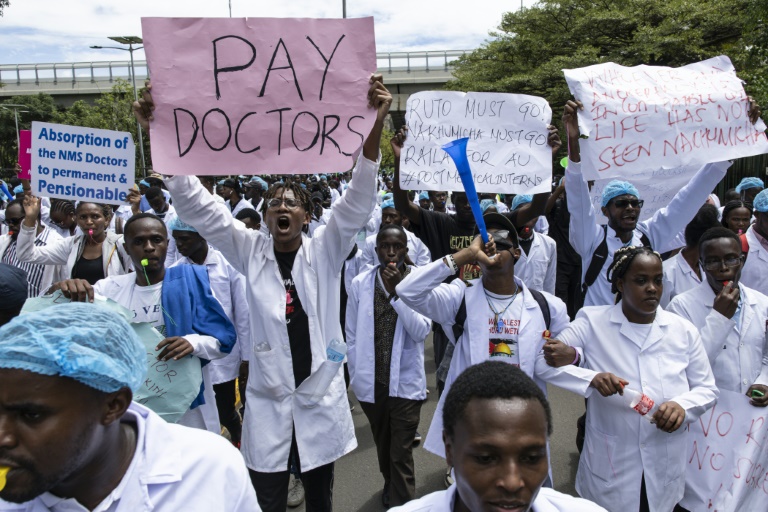By Patricia Mollyne Mataga
The Pharmaceutical Society of Kenya (PSK) has declared its support for the ongoing doctors’ strike.
PSK has also endorsed doctors’ plea for equitable treatment and enhanced working conditions for all healthcare professionals in the country.
In a statement, the society called upon the government to address what it described as legitimate concerns raised by doctors to ensure uninterrupted access to high-quality health services for all Kenyans.
Among the issues that the striking doctors have raised and which PSK wants to be addressed include the deployment of medical interns, upholding the 2017 Collective Bargaining Agreement (CBA) and adhering to the staffing standards.
“PSK emphasizes the crucial role of medical interns in healthcare delivery. It is important for the government to expedite the posting of interns to healthcare facilities to bolster the workforce and alleviate the strain on existing medical personnel,” the society said in a statement signed by its president Dr Louis Machogu.
Posting of the medical interns has been among the stand-out controversial issues as the Kenya Medical Practitioners, Pharmacists and Dentist Union (KMPDU) wants them paid based on the 2017 CBA.
The CBA set the interns’ salary at over Ksh206,000. However, the Salaries and Remuneration Commission (SRC) has recommended that the salary be capped at Ksh70,000, an amount the government has offered to the doctors.
On Sunday, President William Ruto asked the doctors to accept the offer as it was what the government could afford now.
KMPDU however insists the Ksh206,000 as earlier agreed was fair and what the medical interns deserve.
The government had last week said it was ready to deploy the interns – but based on the SRC recommendation of the salary.
KMPDU has however advised the interns not to pick their deployment letters until the government agrees to pay what they deserve.
But as the stalemate continues, the Pharmaceutical Society of Kenya is now calling for a constructive dialogue that will bring the strike to an end.
“The well-being of Kenyan patients must remain paramount and concerted efforts are needed to ensure the uninterrupted delivery of essential healthcare services nationwide,” noted Dr Machogu.



